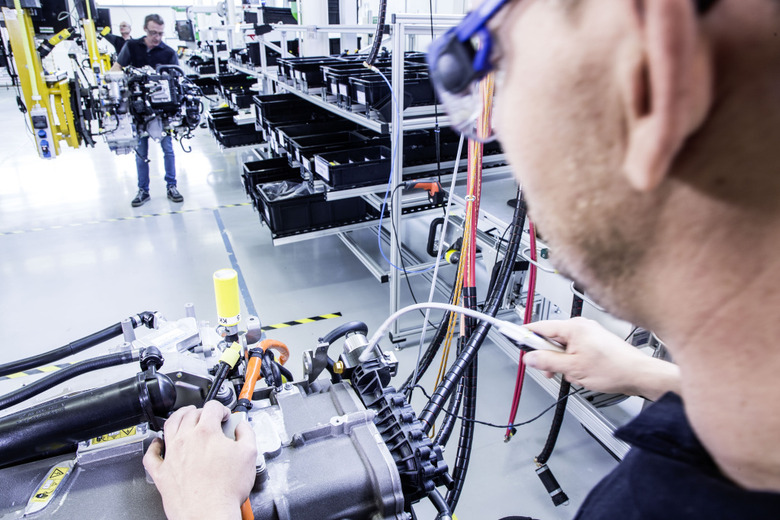Daimler And Volvo Team On Hydrogen Trucks - And The Stakes Are High
Volvo and Mercedes-parent Daimler have inked a deal on a new hydrogen truck joint venture, building fuel-cell powered haulage and buses for greener transportation. The 50-50 project will see Volvo Group spend around $650 million to jump in, while Daimler contributes its existing work on fuel-cells.
Fuel-cells combine hydrogen and oxygen in a complex sandwich of other chemicals, producing electricity that can be used to power a vehicle's motor. In the process, the only byproduct is pure water, rather than the usual smog expected from traditional gas or diesel trucks.
Daimler has been working on hydrogen-powered vehicles for some years now, in part under the Mercedes-Benz Fuel Cell GmbH business. That will be shifted to Daimler Trucks, along with all of the company's other fuel-cell endeavors. The joint venture will go on to operate as an independent and autonomous entity – its name yet to be announced – distinct from both Daimler and Volvo.
"Joining forces will decrease development costs for both companies and accelerate the market introduction of fuel cell systems in products used for heavy-duty transport and demanding long-haul applications," the two automakers said today of the collaboration. "In the context of the current economic downturn cooperation has become even more necessary in order to meet the Green Deal objectives within a feasible time-frame."

The European Green Deal targets both sustainable transport and carbon neutrality in Europe by 2050, an aggressive challenge considering the traditional appetites for petrochemicals in the transportation business. While hydrogen has seen some movement as an alternative fuel in passenger vehicles, it has generally been limited by public access to refueling facilities. In the US, for example, Toyota and Honda offer fuel-cell vehicles, but only in very limited markets where infrastructure is available.
Heavy-duty vehicles, such as trucks and buses, however, represent a different possibility. For a start they can accommodate significantly larger fuel tanks, thus ensuring sufficient hydrogen for longer journeys. Since refueling a hydrogen vehicle takes roughly the same amount of time as a gasoline counterpart, topping up those tanks could be far faster than recharging the batteries of an electric truck or bus with comparable range.
Those possibilities mean Daimler and Volvo aren't the only companies looking to hydrogen in the category. Back in March, for example, Toyota announced it was working on a heavy-duty fuel-cell truck that would have hundreds of miles of range with zero emissions. That's intended for the Japanese market, however.
Daimler and Volvo's target is series production of heavy-duty fuel-cell vehicles in the second half of this decade. The two firms are also leaving the option open for other hydrogen-fueled possibilities, both automotive and non-automotive. Assuming all goes to plan, the joint venture will be settled before the end of this year.
